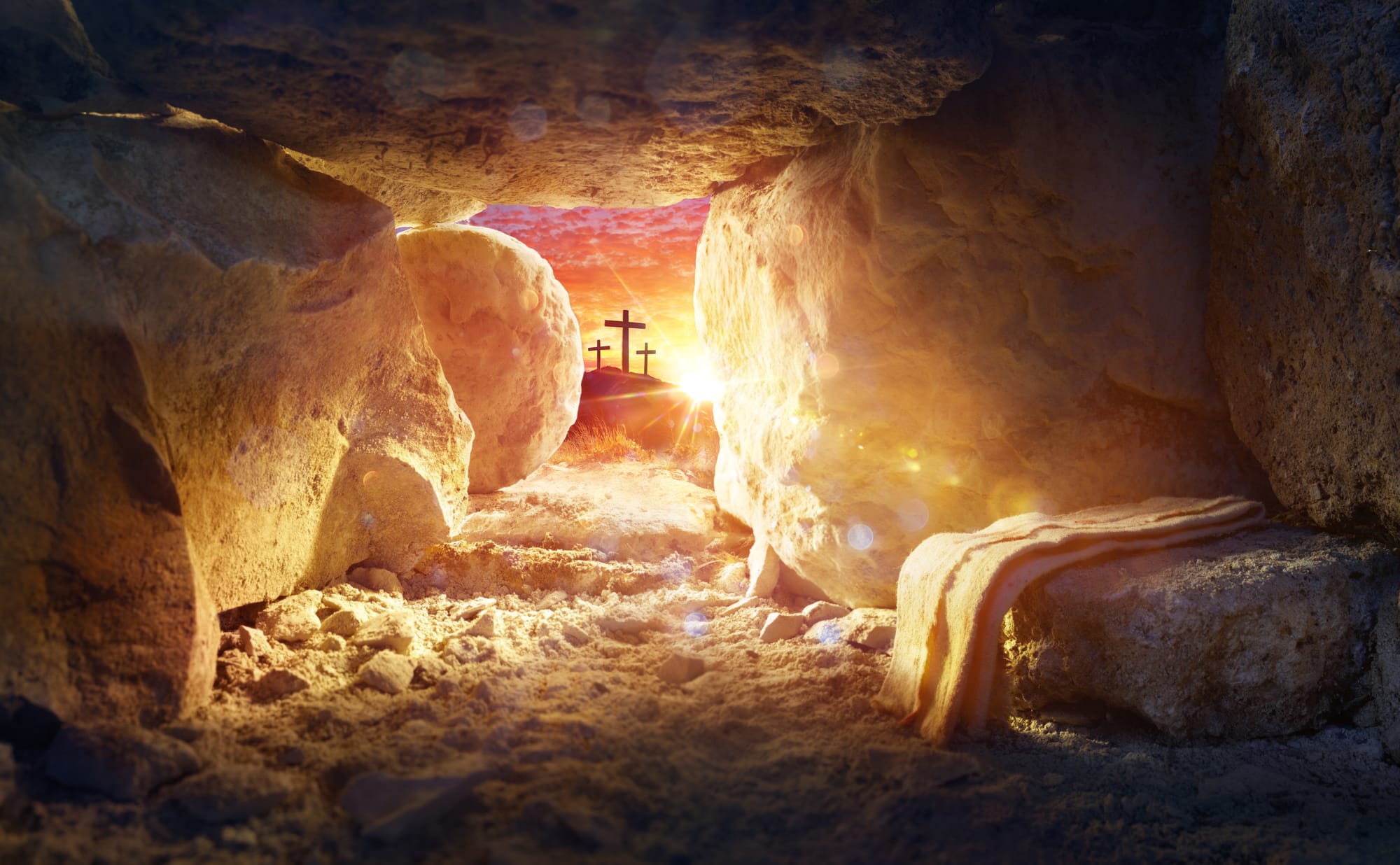Advent and the beginning of Good News
Jeff Hual for Mockingbird // November 25, 2021, 10:22 pm

The good news of Jesus Christ is not the beginning of the Christmas story, writes Jeff Hual. Photo by Laura Nyhuis on Unsplash.
Have you ever wondered what Christmas would be like if Mark’s Gospel were the only one that had survived?
Let me explain: The Nativity stories that we know and love come entirely from the Gospels of Luke and Matthew.
It’s Luke who gives us the Christmas account of the trip to Bethlehem and the angels announcing the royal birth to shepherds abiding in the fields (Luke 2:6-8).
It’s Matthew who gives us the Epiphany account of travelers from the East with expensive gifts for the newborn king (Matthew 2:1-2).
What if we knew absolutely nothing of the Nativity of our Lord Jesus Christ?
Mark tells us with the first words of his Gospel that what he is relaying to us is “the beginning of the good news of Jesus Christ”. (Mark 1:1) So naturally, you and I might be left expecting those miraculous stories filled with angels, shepherds, a babe in a manger and visiting magi, but Mark skips these entirely.
Instead, Mark begins his account of the good news of Jesus Christ by not even talking about Jesus.
His Gospel bursts on the scene with the story of John the Baptist, the wild man of the wilderness, wearing a hair shirt and carrying a big stick, gobbling locusts and wild honey (Mark 1:4).
Mark explains that this wild man, John, was a prophet offering a baptism of repentance for the forgiveness of sins, and that the whole countryside and everyone in Judea was coming out to John at the River Jordan to be baptised.
So, what if Mark’s Gospel was the only one we had, and we knew absolutely nothing of the Nativity of our Lord Jesus Christ?
A different starting point
We all love those miraculous, awe-inspiring stories, but what Mark is saying at the beginning of his Gospel matters at Christmas just as much. New Testament scholars often talk about Mark’s sparing use of words to convey momentous ideas.
Mark is like the Ernest Hemingway of the Gospel writers, and in typical Markan fashion he has conveyed something momentous, both by what he has said and by what he has not said.
Mark’s approach aptly conveys the idea that the beginning of the good news of Jesus is not the birth of the Saviour. The beginning, rather, is our need for a saviour.
Perhaps that’s why Mark doesn’t start with Jesus. Instead he starts with you and me, as represented by the whole Judean countryside, and he seeks to convey our yearning, our need.
The beginning of the good news of Jesus is our need for a saviour. Humanity longing to be put right.
Mark does so most likely because you and I, and everyone who has ever been born, is born with an innate understanding that something just isn’t quite right. What’s wrong is something deep inside us. It has to do with the fact that we as humanity broke this world, the Bible attributing this brokenness to the actions of our original forebears in the Garden of Eden.
As a result of this brokenness, which theologians call original sin, humanity has walked this Earth as strangers, yearning to be made whole again, longing to be put right.
This in Mark’s account is what is driving the people out of their homes and into the Judean countryside: A yearning to be changed, to be forgiven, to be put right with God.
Because this yearning is so vividly expressed by Mark with John’s baptism of repentance, perhaps the key to grasping Mark’s point is to understand the true meaning of repentance, which in the Greek is “metanoia”. It means, literally, to see the world from a new vantage point. “Metanoia” means to open one’s eyes to see the world with new eyes — to realise where the real lies.
Not a conditional faith
Repentance is a word forever linked with the advent of Jesus, such that a decision for or against Christ signifies a choice for or against repentance.
In the eyes of Jesus, we are all sinners in need of repentance.
The good news of Jesus begins first with the bad news of repentance, despair and need.
Jesus said He came to call sinners and not the just, and He told parables that promise God’s forgiveness to those who will recognise their sinfulness.
The good news of Jesus begins first with the bad news of repentance, despair and need.
Unfortunately, many tend to think that we have to repent in order to be forgiven by God, as if the process of salvation were a conditional “if-then” statement: “If I repent, then God will forgive me.”
Or conversely: “If I do not repent, then somehow God is out to get me.”
Remember, though, what David Zahl says in Seculosity about “if-then” statements when it comes to Christianity, that there are no “if-then” statements when it comes to faith.
This is because an “if-then” statement is conditional, as if God’s love for us were somehow conditional, something that we must earn. The truth, however, is almost too good for us to bear: That by the forgiveness of everyone through the death of Christ, God already forgave you before you repented. God forgave you before you saw the need to repent.
Mark is sending us a message that the promised future, and not our broken past, is what truly matters.
When we repent we aren’t earning some conditional forgiveness, because that would mean God’s love is a conditional love. No, it is the kindness of God that leads us to repentance (Romans 2:4).
Repentance is an act of accepting a forgiveness and a love that was always there, waiting for us to receive it. According to Fred Buechner, to repent is to come to your senses. It isn’t so much something you do as something that happens. True repentance spends less time looking at the past and saying “I’m sorry” than at the future and saying “Wow”!
Thus, in recounting John’s baptism of repentance as the “beginning of the good news of Jesus Christ,” Mark is sending us a message that the promised future, and not our broken past, is what truly matters.
Repentance signifies for us a new beginning, because Jesus is coming: He will save us from our yearning, He will set us free from all that’s broken, and He will bring us into God’s love.
So get ready to see things in a new way. Repent.
FOR MORE STORIES LIKE THIS:
Feeling the loss of a loved one this “merry” season? Remember the Christ of Christmas
We are an independent, non-profit organisation that relies on the generosity of our readers, such as yourself, to continue serving the kingdom. Every dollar donated goes directly back into our editorial coverage.
Would you consider partnering with us in our kingdom work by supporting us financially, either as a one-off donation, or a recurring pledge?
Support Salt&Light



